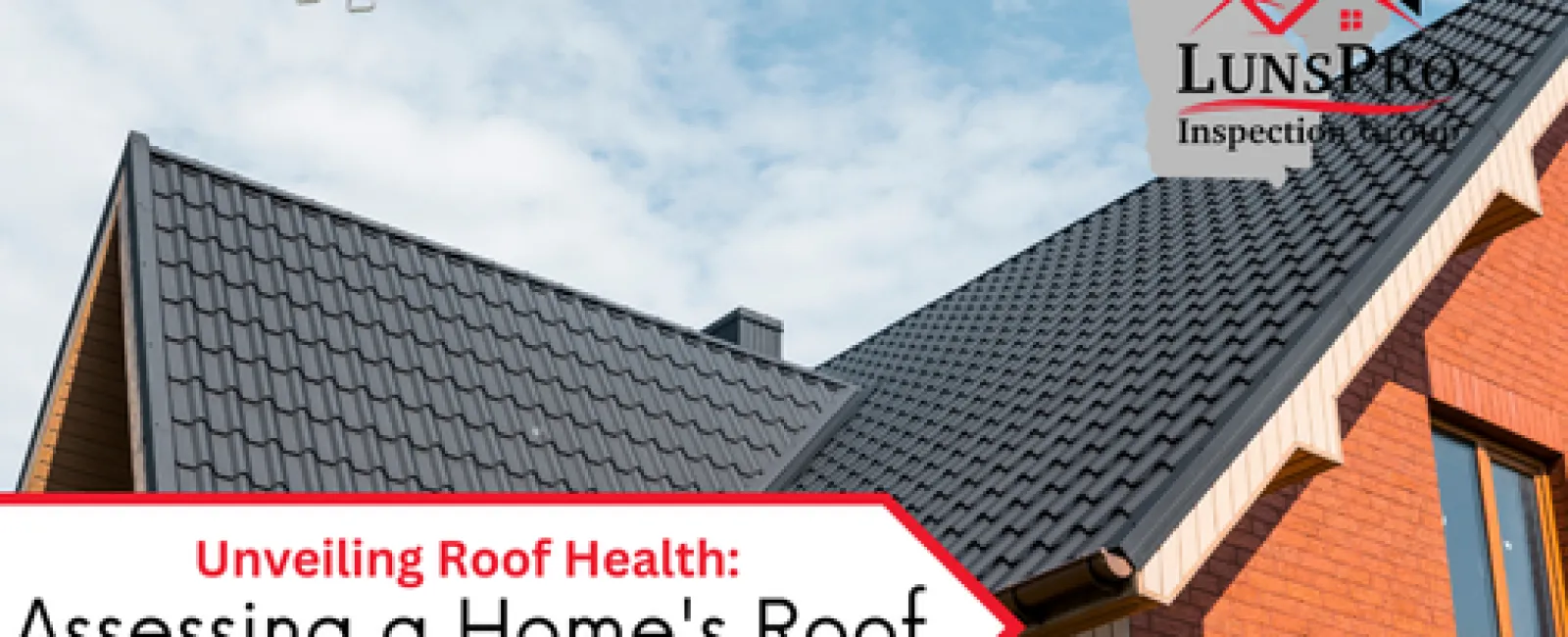Your home's roof is a vital component of its structure, providing protection against the elements and maintaining the integrity of your property. Over time, however, roofs can deteriorate due to various factors such as weather exposure, aging, and lack of maintenance. Assessing the condition of your roof is crucial to identify any issues early on and prevent costly repairs or replacements down the line. In this comprehensive guide, we'll explore the process of assessing a home's roof using drone inspections and why it's a game-changer in the field of home inspections.
Understanding Roof Health
Before delving into the specifics of drone inspections, it's essential to understand what constitutes a healthy roof. A healthy roof should be structurally sound, free of any leaks, and capable of withstanding the elements. Signs of a healthy roof include intact shingles or roofing materials, proper drainage, and adequate ventilation. Conversely, signs of roof damage or deterioration may include missing or damaged shingles, sagging or uneven sections, and evidence of water stains or leaks in the attic or ceilings.
Traditional Roof Inspections vs. Drone Inspections
Historically, roof inspections were performed manually, with inspectors physically climbing onto the roof to assess its condition. While this method can be effective, it presents several challenges, including safety risks for inspectors and limitations in accessing hard-to-reach areas of the roof. Additionally, manual inspections may not provide a comprehensive view of the entire roof surface, leading to potential oversight of issues.
Enter drone inspections, a cutting-edge technology revolutionizing the field of home inspections, including roof assessments. Drones equipped with high-resolution cameras can capture detailed images and videos of the entire roof surface, providing inspectors with a comprehensive view of its condition. This aerial perspective allows inspectors to identify issues such as missing shingles, cracks, or areas of water ponding more efficiently and accurately than traditional methods.
The Advantages of Drone Inspections
Drone inspections offer several advantages over traditional roof assessments.
- Firstly, drones can access areas of the roof that may be difficult or unsafe for inspectors to reach manually, such as steep pitches or sections with limited accessibility. This comprehensive coverage ensures that no area of the roof is overlooked during the inspection process.
- Secondly, drone inspections are faster and more efficient than manual assessments. With drones, inspectors can survey a roof in a fraction of the time it would take to conduct a manual inspection, allowing them to inspect more properties in a shorter period. This increased efficiency is beneficial for both inspectors and homeowners, as it minimizes disruption and downtime.
- Another significant advantage of drone inspections is their ability to capture high-resolution images and videos of the roof surface. These visuals provide homeowners with a clear understanding of the condition of their roof and any issues that may require attention. Additionally, inspectors can use these images to generate detailed reports for homeowners, complete with annotations and recommendations for repair or maintenance.
Incorporating Drone Inspections into Home Inspections
When scheduling a home inspection, homeowners should inquire about the availability of drone inspections, especially for roof assessments. By leveraging this advanced technology, homeowners can gain valuable insights into the condition of their roof and make informed decisions about maintenance or repairs. Additionally, drone inspections can provide peace of mind, knowing that their roof has been thoroughly assessed by trained professionals using state-of-the-art equipment.
Best Practices for Drone Roof Inspections
To ensure the success of a drone roof inspection, it's essential to follow best practices and guidelines.
- Firstly, the drone operator should be trained and certified to operate the equipment safely and effectively.
- Additionally, weather conditions should be optimal, with minimal wind and precipitation, to ensure stable flight and clear imaging.
- It's also crucial to obtain any necessary permissions or permits for flying drones in the area, especially in residential neighborhoods or near airports.
- During the inspection, the drone should capture images and videos of the entire roof surface from multiple angles and elevations. Inspectors can then review the footage to identify any areas of concern, such as damaged shingles, flashing, or debris buildup.
- Finally, the inspector should compile a comprehensive report detailing their findings, complete with annotated images and recommendations for repair or maintenance.
The Importance of Regular Roof Maintenance
Regular roof maintenance is essential to prolonging the lifespan of your roof and preventing costly repairs or replacements. By scheduling annual inspections and addressing any issues promptly, you can ensure that your roof remains in optimal condition year-round. Additionally, maintaining proper drainage and keeping your roof free of debris can help prevent water damage and prolong the life of your roofing materials. At LunsPro Home Inspections, we offer comprehensive roof maintenance services to help homeowners keep their roofs in top condition and avoid potential problems down the line. Trust our experienced team to provide you with reliable maintenance solutions tailored to your specific needs.
The Impact of Weather on Roof Health
Weather conditions play a significant role in the health and longevity of your roof. Exposure to harsh elements such as rain, wind, snow, and UV radiation can accelerate the deterioration of roofing materials and compromise the structural integrity of your roof over time. Additionally, extreme weather events such as hurricanes, tornadoes, and hailstorms can cause severe damage to roofs, including missing shingles, cracked tiles, and even structural collapse.
As a homeowner, it's essential to be proactive in protecting your roof from the effects of weather. Regular inspections can help identify any damage or weak spots caused by weather exposure, allowing you to address issues before they escalate into more significant problems. Additionally, investing in high-quality roofing materials and proper installation can help improve your roof's resilience to weather-related damage and prolong its lifespan.
Assessing the condition of a home's roof is a critical aspect of homeownership, and drone inspections are transforming the way this task is performed. By providing inspectors with a comprehensive aerial view of the roof surface, drones enable faster, more efficient, and more accurate assessments, ultimately benefiting homeowners by identifying issues early and prolonging the lifespan of their roof. As drone technology continues to advance, we can expect to see its widespread adoption in the field of home inspections, further enhancing the quality and efficiency of roof assessments for homeowners across Atlanta, Georgia, and beyond. Trust LunsPro Home Inspections for thorough, reliable, and innovative home inspection services tailored to your needs.

